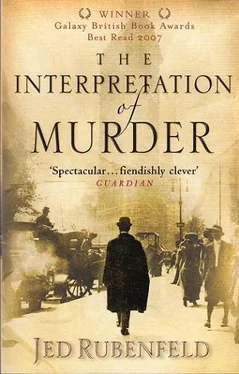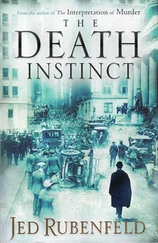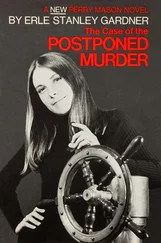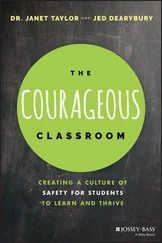Jed Rubenfeld - The Interpretation of Murder
Здесь есть возможность читать онлайн «Jed Rubenfeld - The Interpretation of Murder» весь текст электронной книги совершенно бесплатно (целиком полную версию без сокращений). В некоторых случаях можно слушать аудио, скачать через торрент в формате fb2 и присутствует краткое содержание. Жанр: Исторические приключения, на английском языке. Описание произведения, (предисловие) а так же отзывы посетителей доступны на портале библиотеки ЛибКат.
- Название:The Interpretation of Murder
- Автор:
- Жанр:
- Год:неизвестен
- ISBN:нет данных
- Рейтинг книги:5 / 5. Голосов: 1
-
Избранное:Добавить в избранное
- Отзывы:
-
Ваша оценка:
- 100
- 1
- 2
- 3
- 4
- 5
The Interpretation of Murder: краткое содержание, описание и аннотация
Предлагаем к чтению аннотацию, описание, краткое содержание или предисловие (зависит от того, что написал сам автор книги «The Interpretation of Murder»). Если вы не нашли необходимую информацию о книге — напишите в комментариях, мы постараемся отыскать её.
The Interpretation of Murder — читать онлайн бесплатно полную книгу (весь текст) целиком
Ниже представлен текст книги, разбитый по страницам. Система сохранения места последней прочитанной страницы, позволяет с удобством читать онлайн бесплатно книгу «The Interpretation of Murder», без необходимости каждый раз заново искать на чём Вы остановились. Поставьте закладку, и сможете в любой момент перейти на страницу, на которой закончили чтение.
Интервал:
Закладка:
My mother hated his uncommunicative nature — she says it killed him in the end — but it was, oddly enough, the thing about him I admired most. On the night he took his own life, his comportment at dinner was no different from what it had ever been. I too dissemble, every day of my life, reenacting by half my father's principle, although I don't play the half of him half so well as he. Long ago I made up my mind: I would speak what I feel, but never in any other way display emotion. That's what I mean by half. Truth to tell, I don't really believe in expressing one's feelings other than through language. All other kinds of expression are forms of acting. They're all show. They are all seeming.
Hamlet says something similar. It's practically the first thing he says in the play. His mother has asked him why he still seems so downcast by his father's death. 'Seems, madam?' he replies. 'I know not "seems."' He then deprecates all outward expressions of grief: the 'inky cloak' and 'customary suits of solemn black,' the 'fruitful river in the eye.' These displays, he says, 'indeed seem, for they are actions that a man might play — '
'My God!' I said in the dark. 'My God. I've got it.'
'Me too!' Littlemore exclaimed, just as eagerly. 'I know how he killed Elizabeth Riverford, even though he was out of town. Banwell, I mean. She was with him. Nobody else knew. The mayor didn't know. Banwell kills her wherever they were — okay? — then he brings her body back to her apartment, ties her up, and makes it look like the murder happened there. I can't believe I didn't get it before. Is that what you were thinking?'
'No.'
'No? What was yours, Doc?'
'Never mind,' I said. 'Just something I've been thinking about for a long time.'
'What was it?'
Inexplicably, I decided to try to tell him. 'You've heard of "To be, or not to be"?'
'As in "that is the question"?'
'Yes.'
'Shakespeare. Everybody knows that,' said Littlemore. 'What's it mean? I always wanted to know.'
'That's what I just figured out.'
'Life or death, right? He's going to kill himself or something?'
'That's what everyone has always thought,' I said. 'But that's not it — at all.'
It had come to me in a single instant: whole, allilluminating, like the sun breaking out after a storm. Just then, however, the elevator reached the end of its descent, jolting to a halt. There was an air lock we had to negotiate. Littlemore knelt down to turn the pressure cocks, which were near the floor. Powerful jets of air poured in through them. The smell was peculiar: dry and musty at the same time. The air pressure became unbearable. My head began to pound. My eyes felt as though they were pressing into my brain. The detective was apparently suffering the same symptoms; he blew furiously from his nose, which he was simultaneously squeezing shut. I was afraid he was going to burst an eardrum. But he managed eventually, as I did, to become acclimated to the pressure. We opened the door to the caisson.
Nora Acton rose from her bed at two-thirty that morning, unmolested but unable to sleep. Through her window, she could see the policeman patrolling the sidewalk. There were three in all tonight: one in front, one in back, and one stationed on the roof, who came on when night fell.
By candlelight, Nora composed a short letter, set down in her neat hand on a piece of white stationery. This she sealed in a little envelope, which she addressed and stamped. Then she stole downstairs and slipped the envelope through the front door mail slot, whence it dropped into the box outside. The mail came twice a day. The postman would pick up her letter before seven that morning; it would be delivered well before noon.
I had no idea how enormous it would be. Blue gas flames dotted the caisson's walls, casting webs of flickering light and shadow into the rafters above and the puddled floor below. From the elevator, we climbed down a steep ramp. Littlemore had a hard time of it, grimacing every time he had to put weight on his right leg. We were at the hub of a half dozen wooden plank walkways, leading out in all directions. Room after room could be seen in the distance.
'How long we got, Doc?' asked Littlemore.
'Twenty minutes,' I said. 'After that, we have to decompress on the way up.'
'Okay. It's Window Five we want. The numbers should be on them. Let's split up.'
The detective set off, limping badly, in one direction, I in another. At first all was silence, an eerie and cavernous silence, punctuated only by echoing drips of water and Littlemore's uneven receding footfalls. Then I became conscious of a deep bass rumble, like the growl of some enormous beast. It was coming, I think, from the river itself: the sound of deep water.
The caisson was strangely empty. I had expected machines, drills — signs of work and excavation. Instead there was only the occasional crowbar and broken shovel, lying abandoned among scattered boulders and pools of dark water. I passed into a large chamber, but it must have been an internal one, for I saw none of the debris chutes Littlemore called windows. A plank broke under my shoe as I stepped on it. The crunch was followed by what sounded like scurrying. Could there be mice down here, a hundred feet below the earths surface?
The scurrying ceased so abruptly I wasn't sure if it had been real or in my head. I passed through to another chamber, as empty as the last. My walkway came to an end. I had now to step through puddles of water on the muddy ground, each splash amplified by echoes. In the next room, a series of three large steel plates a couple of feet up from the floor lined the farthest wall; I had found the windows. An array of chains, pull cords of some kind, hung beside and between them. The first had the number seven etched on it. The next had a six. As I bent to look at the last, a hand seized my shoulder.
'We found it, Doc,' said the detective.
'Christ, Littlemore,' I said.
He unlatched the plate numbered five and pulled up on its handle. It rose like a curtain, disappearing into the wooden wall above it. Inside was a coffin-sized space, two feet high and six feet wide, iron-clad on every side, littered with stones, rags, and rubble. The far wall of the compartment was clearly an outer hatch, giving out onto the river: one of the pull chains would doubtless open it 'There's nothing here,' I said.
'Not supposed to be,' answered Littlemore. With considerable difficulty, he sat down and began taking off his shoes. 'Okay, soon as I'm inside, you close the window and flush it. You give me one minute, Doc, exactly one minute, then — '
'Wait — you're not going in the water?'
'I sure am,' he said, rolling up his trouser legs. 'Her body's right outside the outer hatch. Got to be. I'm going to pull her back in. Then you'll pop me out, and we'll be home free.'
'With your leg?'
'I'm okay.'
'You can barely walk,' I said. Swimming by itself would have been painful for him, given the condition of his leg — I feared a hairline fracture — but wrestling with debris or a dead body underwater, a hundred feet down, was out of the question. A strong current would carry him off.
'Only way,' said Littlemore.
'No, it's not,' I said. 'I'm going.'
'Not on your life,' said the detective. He hunkered down to squeeze himself into the compartment, but he couldn't bend his right leg. He turned around and tried, vainly, to shimmy into the compartment backward. He looked at me helplessly.
'Oh, get out of there,' I said. 'You're the one who knows how to work this contraption anyway.'
Thus, astonishingly, a minute later, the person squeezed inside the window was myself, stripped to the waist, shoes and socks off too. I examined the compartment as closely as I could, knowing that in a moment I would be immersed in cold water. An iron handle stuck out from the ceiling. To this I held on tightly. Rubber tubes protruded from the walls. I told myself I would venture into the water for the shortest possible time. After sixty seconds, Littlemore would reopen the window from the inside. I strongly suspected I would find no corpse to haul back in. Littlemore's theory now seemed totally implausible. The window's plates were much too heavy and strong. I didn't see how a girl's body could possibly obstruct its operation.
Читать дальшеИнтервал:
Закладка:
Похожие книги на «The Interpretation of Murder»
Представляем Вашему вниманию похожие книги на «The Interpretation of Murder» списком для выбора. Мы отобрали схожую по названию и смыслу литературу в надежде предоставить читателям больше вариантов отыскать новые, интересные, ещё непрочитанные произведения.
Обсуждение, отзывы о книге «The Interpretation of Murder» и просто собственные мнения читателей. Оставьте ваши комментарии, напишите, что Вы думаете о произведении, его смысле или главных героях. Укажите что конкретно понравилось, а что нет, и почему Вы так считаете.












